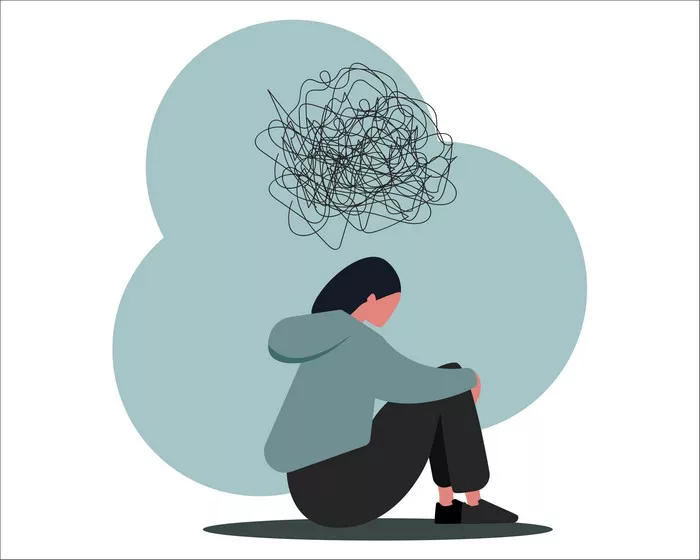Sneezing and a runny nose are some of the most common symptoms that people experience when they are feeling under the weather. However, for some, these symptoms persist for longer than expected, causing discomfort and disruption in daily life. If you’re constantly sneezing and dealing with a runny nose, you might be wondering what’s causing these issues and what steps you can take to alleviate them. While occasional sneezing and a runny nose are often linked to temporary conditions like the common cold or allergies, persistent symptoms may indicate an underlying issue that requires further attention. In this article, we will explore the common causes of chronic sneezing and a runny nose, potential treatments, and steps you can take to manage these symptoms effectively.
What Are Sneezing and a Runny Nose?
Sneezing is a reflex action that happens when the body needs to expel irritants from the nose or throat. When foreign particles, such as dust, pollen, or germs, irritate the lining of the nasal passages, the body triggers a sneeze to clear out these irritants. Similarly, a runny nose occurs when the nasal passages produce excess mucus in response to an infection, irritant, or inflammation. The excess mucus drips out of the nose, resulting in a runny nose, also known as rhinorrhea.
While sneezing and a runny nose are common and usually short-lived, persistent symptoms may suggest something more serious, such as allergies, chronic sinusitis, or other health conditions. Understanding the underlying cause of your symptoms is crucial for choosing the most appropriate treatment and finding relief.
Common Causes of Chronic Sneezing and a Runny Nose
Chronic sneezing and a runny nose can be caused by a variety of factors, each requiring a different approach to treatment. Some of the most common causes include allergies, infections, irritants, and structural issues within the nasal passages.
Allergies
Allergic rhinitis, also known as hay fever, is one of the most common causes of chronic sneezing and a runny nose. Allergies occur when the immune system overreacts to substances that are usually harmless, such as pollen, dust mites, pet dander, or mold. When you are exposed to an allergen, your immune system releases histamines, which trigger inflammation and irritation in the nasal passages, leading to symptoms like sneezing, a runny nose, itchy eyes, and congestion.
Seasonal allergies are typically triggered by airborne allergens like pollen during specific times of the year, while perennial allergies may be triggered year-round by indoor allergens such as dust mites or pet dander. If you suspect that your sneezing and runny nose are due to allergies, it’s important to identify the specific allergens that are affecting you.
Common Cold and Respiratory Infections
One of the most common causes of a runny nose and sneezing is the common cold, which is caused by viral infections like rhinoviruses. Colds can also lead to a sore throat, mild cough, fatigue, and congestion. While a cold typically lasts for a week to ten days, some people may experience lingering symptoms such as a runny nose and sneezing long after the initial infection has passed.
Respiratory infections, such as the flu or other viral or bacterial infections, can also cause similar symptoms. These infections often affect the upper respiratory tract, causing inflammation in the nose, throat, and sinuses. If you have persistent sneezing and a runny nose accompanied by other symptoms like fever, body aches, or fatigue, it may indicate a respiratory infection that requires medical attention.
Chronic Sinusitis
Chronic sinusitis, or chronic rhinosinusitis, is a condition in which the sinuses become inflamed and swollen for an extended period—typically for more than 12 weeks. This condition can cause chronic symptoms such as nasal congestion, a runny nose, facial pain or pressure, reduced sense of smell, and sneezing. Sinusitis can occur due to allergies, nasal polyps, infections, or structural issues within the nasal passages that block sinus drainage.
When the sinuses are blocked, mucus can build up and become trapped, leading to the production of excess mucus and further inflammation. This can result in persistent nasal discharge and sneezing. If you have ongoing symptoms of sinusitis, it’s important to seek medical advice to determine the underlying cause and receive appropriate treatment.
Irritants and Environmental Factors
Environmental irritants, such as smoke, strong odors, pollution, chemicals, and even dry air, can irritate the sensitive lining of the nasal passages. This can lead to chronic sneezing and a runny nose. People who are exposed to these irritants regularly, such as smokers or individuals living in polluted areas, may experience more frequent symptoms. If you live or work in an environment with high levels of irritants, reducing exposure and improving indoor air quality may help alleviate your symptoms.
Structural Issues and Anatomical Abnormalities
Sometimes, persistent sneezing and a runny nose can be caused by structural issues within the nasal passages. For example, a deviated septum, which occurs when the cartilage that separates the two nostrils is crooked or displaced, can obstruct airflow and cause chronic congestion, sneezing, and a runny nose. In some cases, nasal polyps—non-cancerous growths in the lining of the nasal passages—can also contribute to persistent symptoms.
If you have a structural issue that is causing chronic nasal problems, you may need to undergo diagnostic tests, such as a nasal endoscopy or CT scan, to assess the severity of the condition. In some cases, surgery may be necessary to correct anatomical abnormalities and restore normal nasal function.
How to Manage Persistent Sneezing and a Runny Nose
Regardless of the cause of your chronic sneezing and runny nose, there are several strategies you can use to manage the symptoms and find relief. Treatment will depend on the underlying cause, but a combination of lifestyle changes, medications, and home remedies can often help alleviate your symptoms.
Identifying and Avoiding Triggers
The first step in managing chronic sneezing and a runny nose is identifying and avoiding the triggers that are causing your symptoms. If allergies are the culprit, try to minimize your exposure to known allergens. For example, if you are allergic to pollen, try to stay indoors on high-pollen days, keep windows closed, and use air purifiers to filter the air in your home. If pet dander is an issue, consider keeping pets out of certain areas of the house, such as the bedroom, and cleaning your home regularly.
If irritants such as smoke or strong odors are contributing to your symptoms, try to avoid exposure to these triggers. If you work in a smoky or polluted environment, consider wearing a mask or using an air filter to help reduce the impact of these irritants.
Using Medications
Over-the-counter (OTC) medications are often effective in treating chronic sneezing and a runny nose, especially if allergies or a viral infection are to blame. Common OTC medications include:
Antihistamines: These medications block the effects of histamine, which is released during allergic reactions. Antihistamines can reduce symptoms like sneezing, runny nose, and itchy eyes. Popular antihistamines include loratadine (Claritin), cetirizine (Zyrtec), and diphenhydramine (Benadryl).
Decongestants: Decongestants like pseudoephedrine (Sudafed) or phenylephrine (Sudafed PE) can help reduce nasal congestion and promote sinus drainage. However, decongestants should not be used for more than a few days, as prolonged use can lead to rebound congestion.
Nasal Steroid Sprays: Nasal corticosteroid sprays, such as fluticasone (Flonase) or mometasone (Nasonex), can help reduce inflammation in the nasal passages, providing long-term relief from congestion, sneezing, and a runny nose caused by allergies or chronic sinusitis.
Saline Nasal Sprays: Using a saline spray or rinse can help moisturize the nasal passages and clear out mucus and irritants. This can be especially helpful for individuals with dry nasal passages due to environmental factors or sinus issues.
Seeking Medical Treatment
If your symptoms persist despite over-the-counter treatments, it may be necessary to consult a healthcare professional for further evaluation. A doctor can help determine whether your symptoms are caused by allergies, sinusitis, or another underlying condition that requires more specific treatment. In some cases, prescription medications such as stronger antihistamines, leukotriene inhibitors, or nasal decongestant sprays may be necessary.
If an infection is suspected, antibiotics may be prescribed if a bacterial infection is present. In some cases, surgery may be required to correct anatomical abnormalities such as a deviated septum or nasal polyps.
Home Remedies and Lifestyle Changes
In addition to medications, several home remedies and lifestyle changes can help alleviate the symptoms of sneezing and a runny nose. Staying hydrated is crucial, as it helps thin mucus and makes it easier to clear out of the nasal passages. Using a humidifier in your home can also help keep the air moist and reduce nasal irritation caused by dry air.
Gargling with warm salt water can soothe an irritated throat and help clear mucus. Additionally, inhaling steam from a hot shower or a bowl of hot water can provide temporary relief from congestion.
When to Seek Medical Help
While sneezing and a runny nose are often harmless and can be managed with over-the-counter medications, it’s important to seek medical help if your symptoms persist for more than 10 days, worsen over time, or are accompanied by other concerning symptoms, such as a fever, facial pain, or a persistent cough. In these cases, a healthcare professional can help determine the underlying cause and recommend appropriate treatment.
Persistent sneezing and
a runny nose can be a sign of an underlying health condition that requires attention. Whether the cause is allergies, an infection, or a structural issue, addressing the problem early on can help prevent further complications and improve your quality of life.
Conclusion
Chronic sneezing and a runny nose can be frustrating and uncomfortable, but understanding the underlying cause of your symptoms is the first step toward finding relief. Whether your symptoms are caused by allergies, a cold, sinusitis, irritants, or structural issues, there are a variety of treatments available to help manage the condition. By identifying triggers, using appropriate medications, and seeking medical advice when necessary, you can take control of your symptoms and improve your overall well-being.
Related Topics

































